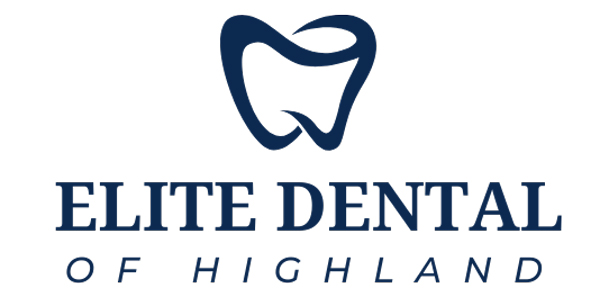Common Dental Emergencies and What to Do Before You Reach the Dentist
Dental emergencies strike when you least expect them, from a sudden, sharp toothache to an accidental chipped or knocked-out tooth. Knowing what steps to take is crucial in protecting your oral health and preventing further complications. Elite Dental of Highland guides patients in Highland, IN with practical dental emergency steps tailored to address these urgent situations. Prompt action and the proper knowledge can make all the difference in preserving your smile during unexpected moments. Before getting professional care, let’s explore how you can confidently handle these emergencies.

What Is a Dental Emergency?
A dental emergency is any oral health issue requiring immediate attention to alleviate pain, stop bleeding, or prevent further damage. These situations often involve severe toothaches, broken or fractured teeth, dislodged fillings, or infections that cause swelling. Left untreated, such problems can escalate into more significant health risks, including abscesses or jawbone infections. Unlike routine dental concerns, emergencies typically demand prompt professional care to preserve oral structures and restore functionality. Recognizing the signs of a dental emergency early can make a critical difference in the outcome, helping to maintain your oral and overall health effectively.
Steps to Take for These Common Dental Emergencies
Dental emergencies can happen unexpectedly, causing discomfort and anxiety. Knowing what to do in a dental emergency can make a difference in addressing pain and preventing further complications. Immediate action is crucial, and appropriate steps should be taken to address the issue until professional care is available. Below is a list of common dental emergencies and practical steps you can take to handle them until you can see a professional:
- Severe Toothache – Swish with warm water to clean the area and remove debris. Avoid using sharp objects to probe the tooth and schedule a dental appointment as soon as possible.
- Chipped or Broken Tooth – Save broken pieces and rinse your mouth with warm water. Apply a cold compress to the outside of your cheek to reduce swelling.
- Knocked-Out Tooth—If possible, keep the tooth moist by placing it in milk or carefully reinserting it into the socket. See a dentist as soon as possible for the best chance of saving the tooth.
- Objects Stuck Between Teeth – Gently remove the object using dental floss, but avoid using sharp tools. If you cannot remove it, contact your dentist for assistance.
- Lost Filling or Crown—Use dental cement or sugarless gum to temporarily cover the area and protect it from further damage. Then, schedule an urgent appointment to have the filling or crown properly restored.
- Abscess or Swelling – Rinse your mouth with diluted salt water several times a day to help reduce infection. Seek prompt care from your dentist, as untreated abscesses can lead to more serious problems.
Tips to Avoid Dental Emergencies
Preventing dental emergencies is about practicing good habits and staying proactive with oral health. Any effort can save you from discomfort and costly treatments. A few practical steps can protect your teeth and gums while reducing the risk of unexpected dental issues. These emergency dental care tips will help you maintain a healthy smile and avoid unnecessary stress in the future:
- Wear a Mouthguard – Wear a well-fitted mouthguard during contact sports or physical activities. It helps prevent broken teeth, jaw injuries, and other common problems caused by impact.
- Avoid Chewing Hard Objects—Avoid biting down on ice, pens, or other hard items that can crack or break your teeth. Stay away from foods that are easier to chew to reduce unnecessary pressure on your enamel.
- Practice Good Oral Hygiene—Brushing twice daily and flossing keeps teeth strong and resilient against decay. Regular cleanings and checkups help catch small issues before they turn into emergencies.
- Be Cautious With Sticky or Sugary Foods – Sticky treats and sugary drinks can lead to cavities and increase the risk of dental issues. Rinse with water or brush soon after consuming sugary items to minimize damage.
- Address Dental Problems Quickly – Don’t ignore tooth pain or other unusual symptoms. The sooner you reach out, the more likely you are to prevent complications from worsening.
Why Is Acting Quickly Important?
Quick action is critical in preserving oral health following a dental injury. Time-sensitive response can prevent complications like worsening infections, increased pain, or permanent damage to teeth and gums. Following proper dental emergency steps allows for more effective treatment and better long-term outcomes. Unaddressed injuries may lead to tooth loss or more invasive procedures later. Swift intervention supports natural healing processes and reduces the risk of further deterioration, helping to restore function and comfort. Immediate care helps save damaged teeth while avoiding preventable issues in the future.
How to Prep for Dental Emergencies
Proper preparation can make responding to dental emergencies easier. Assemble a dental first aid kit with essentials like gauze, dental floss, over-the-counter pain relievers, and a small container for preserving dislodged teeth. Keep salt packets handy for creating saline rinses. Update your kit regularly to ensure supplies are fresh and usable. Learn basic dental trauma first aid techniques to address knocked-out teeth, chipped enamel, or gum injuries. Discuss emergency plans with your dental team and learn about their after-hours procedures. Share this knowledge with family members, ensuring everyone can confidently handle expected dental injuries.
When Should You Seek Professional Help?
Understanding when to seek help for dental emergencies can make a significant difference in preserving oral health. Severe pain that disrupts daily activities indicates the need for immediate attention. Swelling around the gums, face, or neck may signify an infection requiring treatment. If a tooth is knocked out, prompt care improves the chances of saving it. Loose or fractured teeth, especially if accompanied by bleeding, demand professional evaluation. Unexplained numbness in the mouth or jaw suggests potential nerve issues that must be addressed. Prioritize seeking care without delay when symptoms are intense or conditions worsen unexpectedly.
Get Emergency Dental Care in Highland Today
Your comfort and health are our top priorities at Elite Dental of Highland. Trust our experienced team to handle urgent dental needs with care and precision. For comprehensive support, explore our emergency dental care tips designed to help you act swiftly and preserve your oral health in critical situations. Protect your smile by staying informed and proactive. If you’re facing a dental emergency or want to be prepared, contact Elite Dental of Highland today. Our dedicated professionals are here to provide the guidance and expert care you deserve. Don’t wait. Reach out now to safeguard your dental health.
